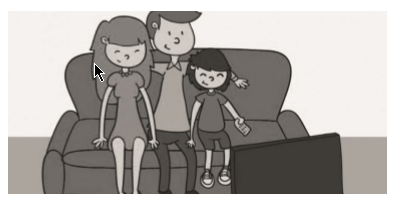Today we continue to cover present tense; we will learn some more rules that can be called “exceptions.”
Though it is indefinite, the present tense is simple, but there are some naughty exceptions.
So, we have few more endings to pay attention to: “sh” and “ch”:
c
As I explain to my students, the reason for adding “e” before the “s” is to simplify the pronunciation.
One more case when we need to consult the English grammar rules is when a verb has a “y” ending.
|
I/You/We/They play, but She/He plays |
OR | I/You/We/They study, but She/He studies | |
|
For example: |
* George pays for his dinner, but, I pay for my dress. * Linda studies new grammar, but, we study hard to enter Cambridge University. * You play the guitar beautifully. Where do you study? But, he almost flies when he plays without music. |
|
Let’s revise, one more time, questions and negatives. We still use the verb to do with the new kind of verbs that we have learned.
|
|
|
|
|
Do you play the guitar every day? |
Does he study the theory? | |
As you can see, we can just divide this verb into two versions – the verb changes depending on who does it:
|
I/You/We/They |
look | |
|
She/He |
looks | |
| This is easy, isn’t it?
If we continue, we will find similar changes in some verbs in the present tense, but don’t be afraid. It is still present simple! |
What happens here? Verbs ending in “o” take on an additional “e” before the “s” depending on who is doing it. Another example: | |
|
I/You/We/They go, but She/He goes |
I/You/We/They do, but She/He does | |
Let’s look at the verb “to do.”
This verb is used to ask questions and to form negative sentences.
To make a question, we take the verb to do in the needed form in the present tense and place it at the beginning of the sentence. The main verb goes after the subject in the infinitive form.
To make a negative, we take the verb to do in the present tense and in the needed form, and put the negative part – “not” – after it; the main verb goes after the subject in the Infinitive form.
Introduction
My dear students, I want you to speak English. You will have to learn a lot of new grammar, so take your learning process seriously.
I have created a course for beginners and a course for intermediate students. I have conducted experiments with students at my school. What I learned from this is that there are no complete beginners, so the course for beginners is not as quite as easy as you hope. I am sorry about that. All of my so-called beginners started speaking after three classes, and now I don’t believe that anyone is actually a complete beginner.
The English language is found in every sector of life. You cannot avoid it. Really, if you are using your computer, you use English (unless you are a Frenchman). As for the French, they also use many English words to speak about beauty and cosmetics.
And my last piece of advice: don’t be lazy. If you have any questions, you can ask them through any of my social networks. Also, find someone you can talk to in English.
This will be an awesome experience, and a great help for your first steps. Unfortunately, not everyone can wait for sixteen years to learn a new language. Take profit from these concise lessons. I created them with love, and hope to talk to you soon!
I wish you good luck and enjoyment!
|
|
|
|
| Do you teach music or languages? | Does he watch TV every Saturday evening? |
|
As you can see, in questions we change the verb to do, but the main verb remains unchanged. The same thing happens when we use negatives:
No, I do not play the guitar every day.
No, he doesn’t study the theory at all!
We do not teach music, but we teach languages.
No, he does not watch TV on Saturday, but he watches it on Monday.











